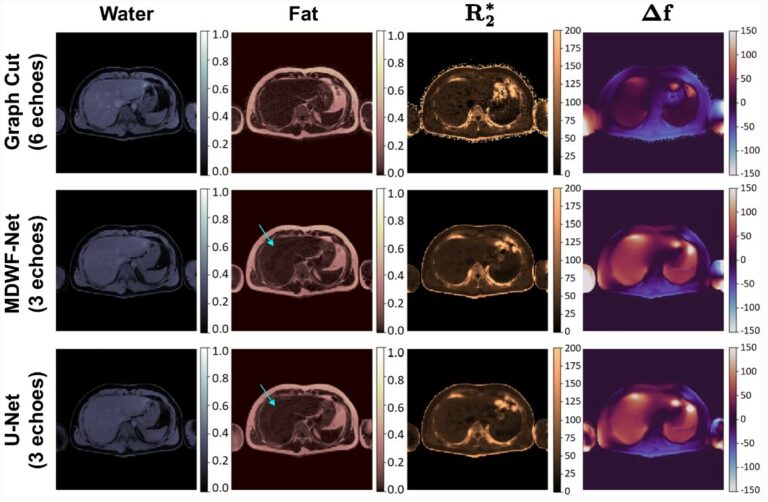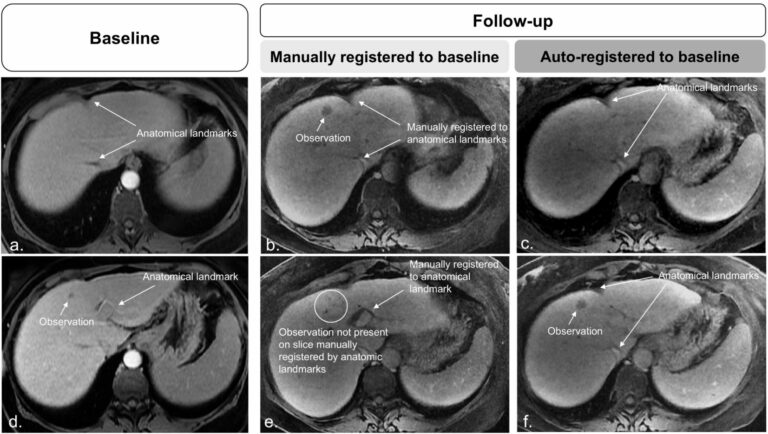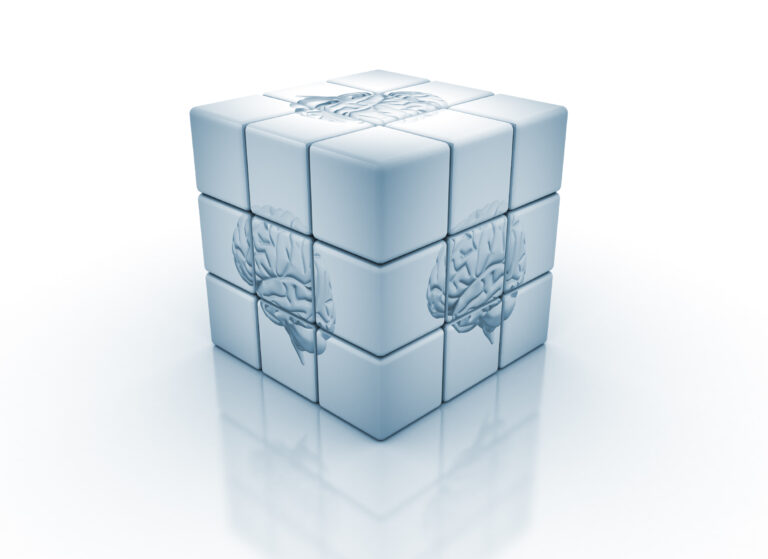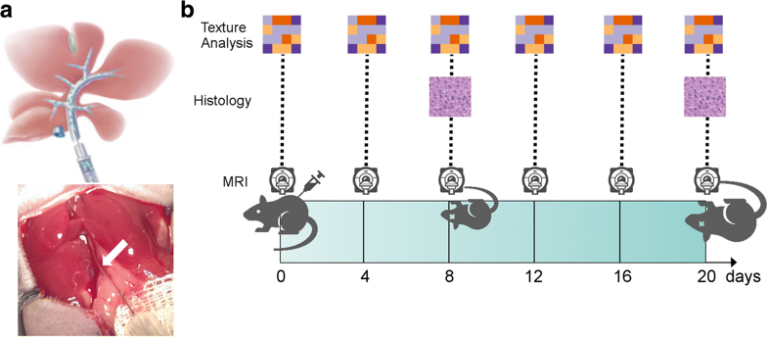
Using a multi-decoder water-fat separation neural network for liver PDFF estimation
The authors of this study proposed a multi-task U-Net-based architecture to jointly estimate water-only and fat-only images. This approach allowed for the improvement in the estimation of water-fat images, enabling a reduction of the necessary echoes to achieve an accurate proton density fat fraction (PDFF) quantification. The proposed method was shown to be a reliable liver fat quantification tool for













